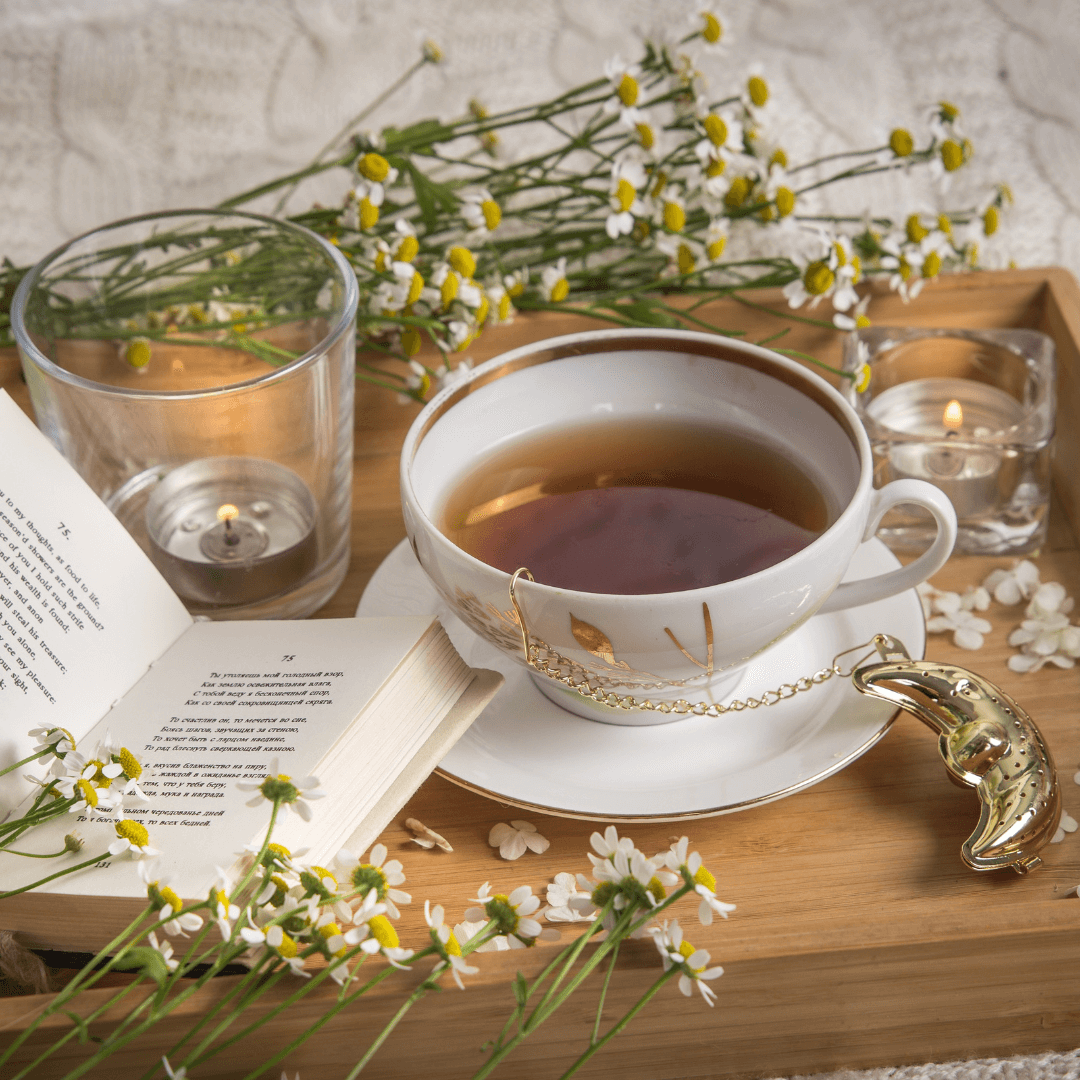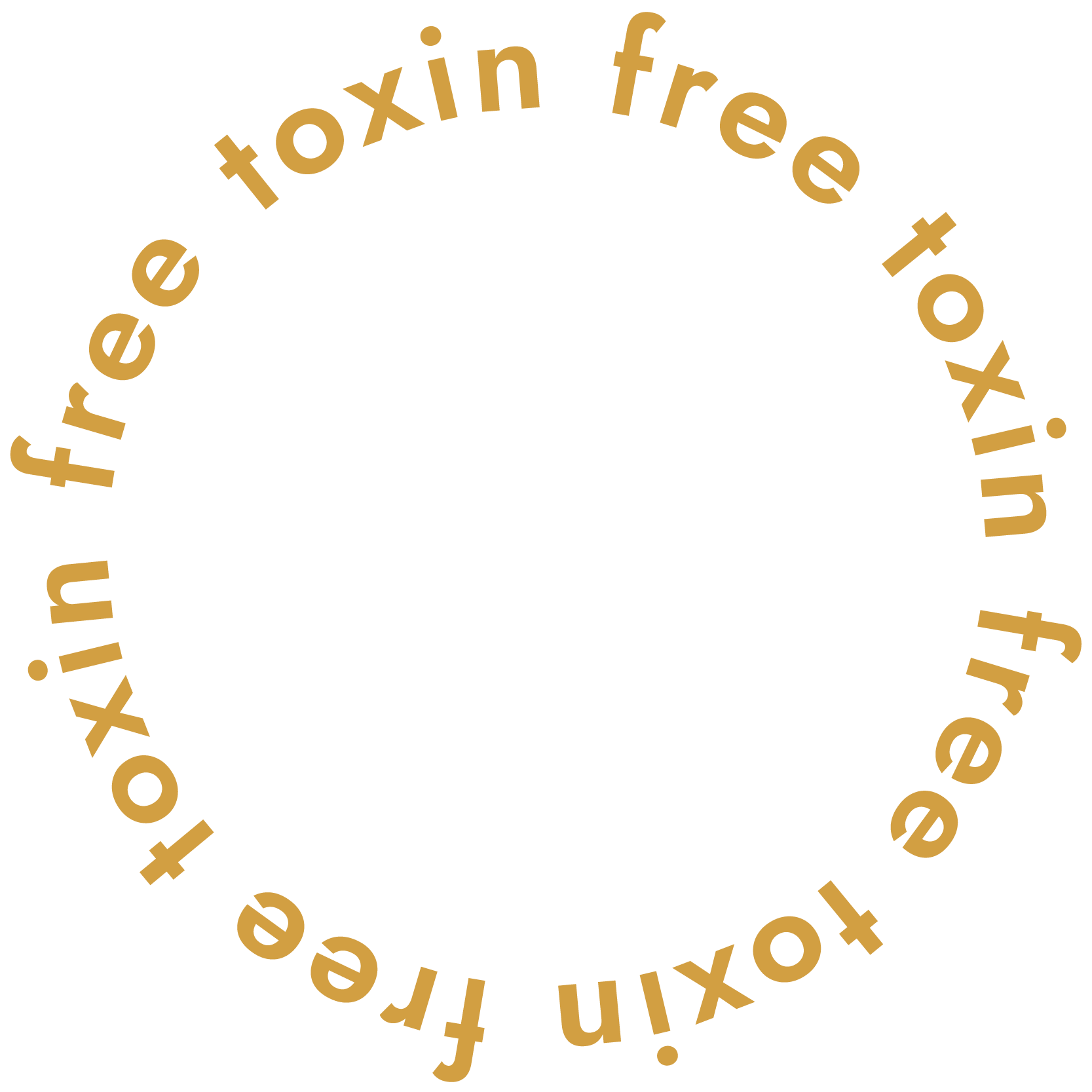Apple Podcasts | Spotify
Are you a tea drinker? I’m a huge tea lover. I drink it daily, and it’s always got to be extra hot. Nothing relaxes me more than a hot cup of chamomile tea with raw honey at bedtime. Herbs can be so healing and have so many known health benefits, but recent studies have shown that toxins in tea bags could make your daily tea something that actually does more harm than good.
Whether your disposable tea bags are made from nylon, plastic, cotton, hemp, or even paper, there could be toxins leaching into your cup of tea. I’ve been drinking tea for years, and I’ve been very careful to buy from plastic-free tea bag companies. Plastics leach billions of particles of microplastics, and hormone-disrupting chemicals called phthalates into your cup of tea.
I know you love the convenience of a tea bag (I did, too), but a recent study has me ditching the tea bag altogether. If you are a daily tea drinker and want to enjoy your cup of tea without the side of harmful toxins, this episode is for you.
P.S. This episode was inspired by a listener’s question! Submit yours here for it to possibly be featured on a future episode!
In This Episode:
-
Why I made the switch to loose-leaf tea
-
Toxins in tea bags
-
Study of PFAS in water vs tea bags
-
What about drinks in plastic bottles?
-
My Loose Leaf Tea Routine
Why I Made the Switch to Loose Leaf Tea
In full transparency, I was drinking out of tea bags up until a few months ago. I had done my research, and I felt comfortable that Pukka was making their tea bags out of materials that I felt were safe. Now that I’ve ditched the tea bags altogether, I have a cupboard full of tea bags I’m not quite sure what to do with. Hormone disruptors are a big no-no for me, especially when I can do something about it that isn’t that hard.
For some reason, I had in my head that loose-leaf tea was inconvenient and a lot of work. Surprise, surprise, it’s actually not.
I made the switch in 2019 when I read a study that found that when brewing boiling water, a single plastic tea bag can release approximately 11.6 billion microplastics and 3.1 billion nanoplastics into one single cup of tea. That was when I started researching where my tea bags were coming from. Over the coming years, that concern was validated with even more science. In 2021, another published article said microplastics found in tea bags are getting into your tea.
But for those of us who get a little busy and our tea gets a little cold (you know what I’m talking about), you microwave it, which increases the amount of microplastics that are released. Even if the tea bag isn’t in the tea!
Then another study at the end of 2023 showed phthalates (AKA hormone disruptors) are also in tea bags. So, I felt good about my decision to ditch the plastic tea bags.
Toxins in Tea Bags
Even if your tea bags aren’t made with plastic, they likely still have toxins in them. Paper and cotton are big issues because the question of, “Is it bleached,” comes into play.
Here are some other toxins and chemicals that might be found in your tea bags:
-
Polylactic acid
-
Epichlorohydrin – reproductive toxin
-
pesticides
-
Mold
-
PFAS contamination (which could include about 15,000 different chemicals)
Are There Any Safe Tea Bags?
I have tried to find companies who test for PFAS, plastics, and all the different chemicals that could possibly be leaching out of their tea bags, and honestly, there are too many questions out there. Most companies don’t even know because this is such a new issue (to them, at least.)
I’m just not convinced that companies can make a tea bag that won’t completely fall apart in your cup without some chemical being leached. I hope I’m wrong. I hope it happens, especially for anybody listening who isn’t convinced to give up tea bags. I am an official loose-leaf tea convert. It’s honestly not as big of a deal as I thought.
My Loose Leaf Tea Routine
I’ve got my stainless steel ball filter with little clips. I pick up my loose-leaf tea and stick it in my tea bag. I boil water in my stainless steel teapot. It’s important to make sure you have a stainless steel teapot. That way, you’re not using aluminum or other materials that will also leach into your water. Then, I pour it into a mini glass tea cup with a spot for filtering. It’s super cute, and I can make a couple of cups at a time.
There’s so much out there in the market right now for loose-leaf tea. I’m obsessed with Organic Olivia. That’s my favorite brand right now. You can shop my Amazon list for my favorite loose-leaf tea kitchen supplies. It’s time to ditch your tea bags!
If you enjoyed this week’s episode, please:
-
Leave a positive review or rating wherever you listen
-
Shop toxin-free products on my Toxin Free Shopping Guide
-
Download your free Tossing the Toxins Guide
-
Post a screenshot, what you loved from the episode, and tag me on Instagram @wendy_toxinfreeish
-
Want to ask me a question to get answered on the podcast? Leave me a voice message here.
Related Episodes:
Episode 4: Are Toxins in Your Tap Water? Here’s How to Find Out.
Episode 43: Is There Mold in Your Coffee? What You Need to Know About Mycotoxins and My Clean Coffee Picks



+ show Comments
- Hide Comments